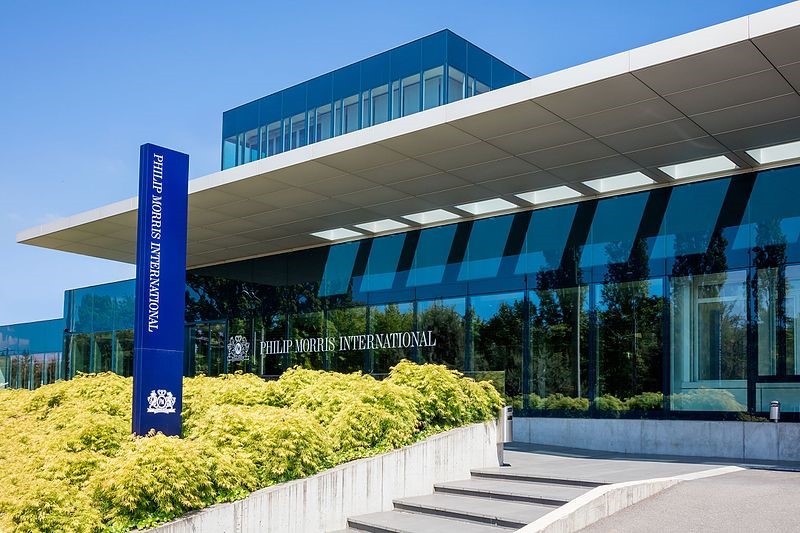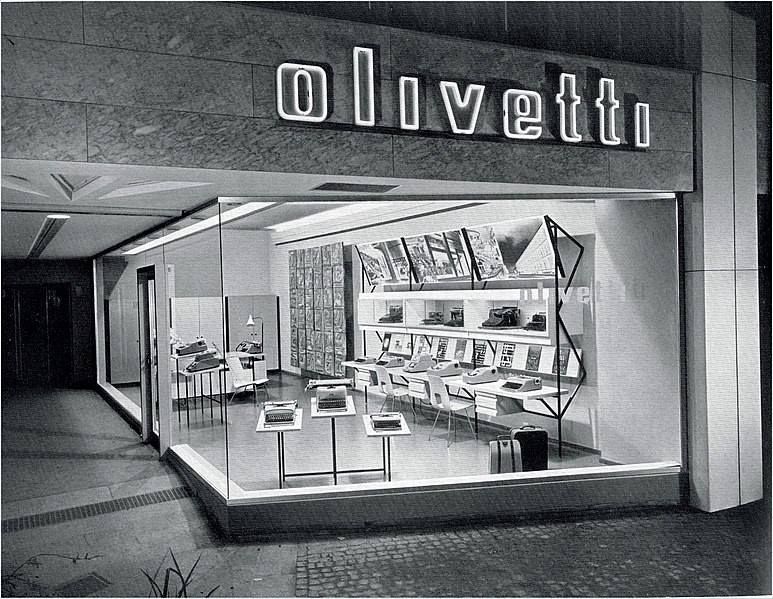If you make a little bit of money — lots of times — over the long run in the stock market, you’ll do very well.
It’s that simple philosophy that keeps us building portfolios for our Wholesale Investors here at Wealth Morning.
Of course, you need the right companies to do this. A few with a higher degree of risk that may perform spectacularly should stars line up. And the bulk which are obtained at a value below what they actually are worth.
In Jeremy Siegel’s book — Stocks for the Long Run — the best-performing stock over the last 80 years is unexpected:
When dividends were reinvested Philip Morris (NYSE: PM) was the best performer in the S&P 500 between 1925 and 2007.

Philip Morris International’s Operation Center in Lausanne, Switzerland. Source: Wikimedia Commons
Morningstar reports:
A $1,000 investment in 1925 would be worth a staggering $380 million in 2007. The position would be worth close to $1 billion today. Over the 82-year period of the study Philip Morris returned an average of 17% a year.
Now, this comes as a bit of a surprise.
Philip Morris is a tobacco company. Over that time period, it faced all manner of problems, from class-action lawsuits and regulation to a decline in smoking.
The reason it has performed so well is not because it is a ‘sin stock’. But simply because the market expectation for Philip Morris was very low.
Hence, value investors who did decide to buy the stock, did so at a discount.
However, today, you will find that this is no longer the case. In 2024, Philip Morris currently trades at a P/E of around 18.5. This is a far cry from 2010, where Philip Morris only traded at a P/E of around 7.
Clearly, it is now much more expensive.
So, even if investing in a sin stock doesn’t bother you, you have to admit: it no longer makes much economic sense. In fact, that fleeting opportunity to buy into Philip Morris at a discount may have come and gone. Today, the valuation of the stock price is much more prohibitive.
But let’s look beyond the tobacco industry.
Let’s look at something more immediate.
Now, there are readers and clients who ask us to follow the latest hot trends. AI, for instance. Well, it’s great to be part of a fast-growing industry. It’s also very hard to make steady and outsized returns when the market expects companies to do very well.
That expectation means they’re expensive. You pay through the nose to get on the bandwagon and be part of the growth story.
So that means we’re looking for two things:
- Growth stories and companies that have yet to have market expectation put a big premium on them.
- Companies that are solid with great prospects, but actually have low market expectation riding on them right now.
We’re also looking to triage out of companies or industries that have probably had their day. The expectation-to-reality ratio could now be back in sync.
The Christmas Party in Singapore
Last month, I spent some time with my family travelling in Singapore and South Korea. These are dynamic and interesting places. Yet it was also a relief to return to New Zealand and appreciate the space and easy lifestyle we have here.
As professional investors, we are ‘mental athletes’. We get paid to think. That means, even though I was on holiday from the trading desk, I was still observing markets, thinking about opportunities, and keeping my mind fit.
One of the more interesting conversations I had was at a Christmas party.
Each year, my wife’s relative holds this party in his large home near Singapore’s Changi Airport. About 40 to 50 people attend, made up of extended family members and friends.
I’ve been attending every three to five years for the past 20 years that I’ve known my wife.
Since I only see most of these people after an interval of several years, it is interesting to observe how life has changed.
Elderly relatives slow down. Some need assistance with their mobility. This year, one had passed.
The kids grow up. A girl who was 12 at my engagement party was now married to a guy from Italy. They had a nearly 2-year-old son.
In a cosmopolitan family in Singapore, there are always interesting people to talk to. And last year, the conversation with the Italian intrigued me.
He worked in investment in Singapore but hailed from a small town called Ivrea, about an hour from Turin. Ivrea is known for its 14th century castle and as the home of Italian IT company Olivetti.
Well, IT is a wide description. Olivetti made typewriters and computers. It was started in 1908.

Olivetti brand store in 1966. The Apple of its day. Source: Wikimedia Commons
By the 1990s, it was on the brink of collapse. It could not compete with US vendors and cheaper manufacturers in Taiwan. It needed government support to stay afloat and was eventually absorbed into Telecom Italia.
Unlike Philip Morris, Olivetti was a business that had strong expectation upon it as a maker of technology for much of last century.
Today, it provides a warning against investing in businesses that face considerable disruption to their markets.
In this research, I’d like to look at one industry I’m considering exiting. And another industry that captivates me.
Both provide strong examples of the expectation-to-reality ratio…
Your first Quantum Wealth Report is waiting for you:
⚡🌎 Start Your Subscription: NZ$37.00 / monthly
⚡🌎 Start Your Subscription: US$24.00 / monthly







Simon is the Chief Executive Officer and Publisher at Wealth Morning. He has been investing in the markets since he was 17. He recently spent a couple of years working in the hedge-fund industry in Europe. Before this, he owned an award-winning professional-services business and online-learning company in Auckland for 20 years. He has completed the Certificate in Discretionary Investment Management from the Personal Finance Society (UK), has written a bestselling book, and manages global share portfolios.